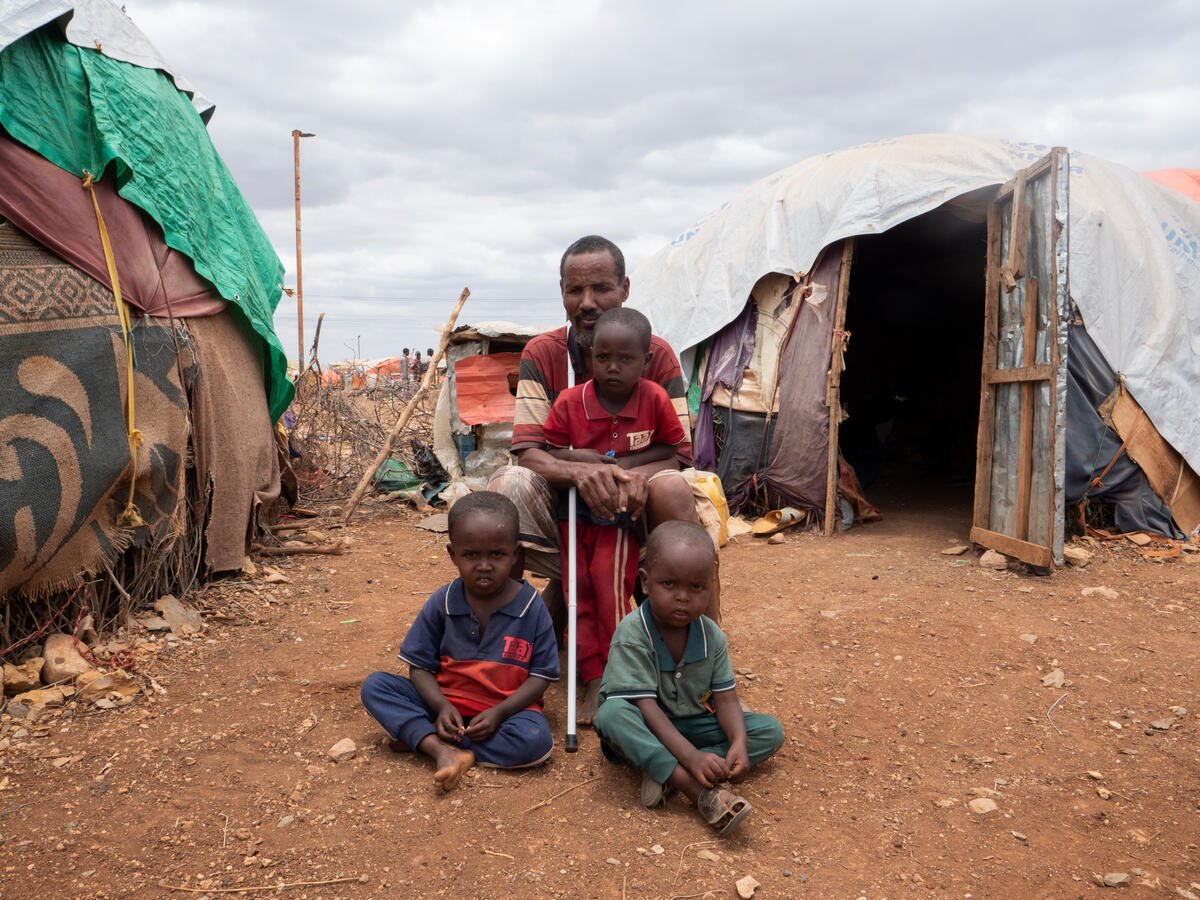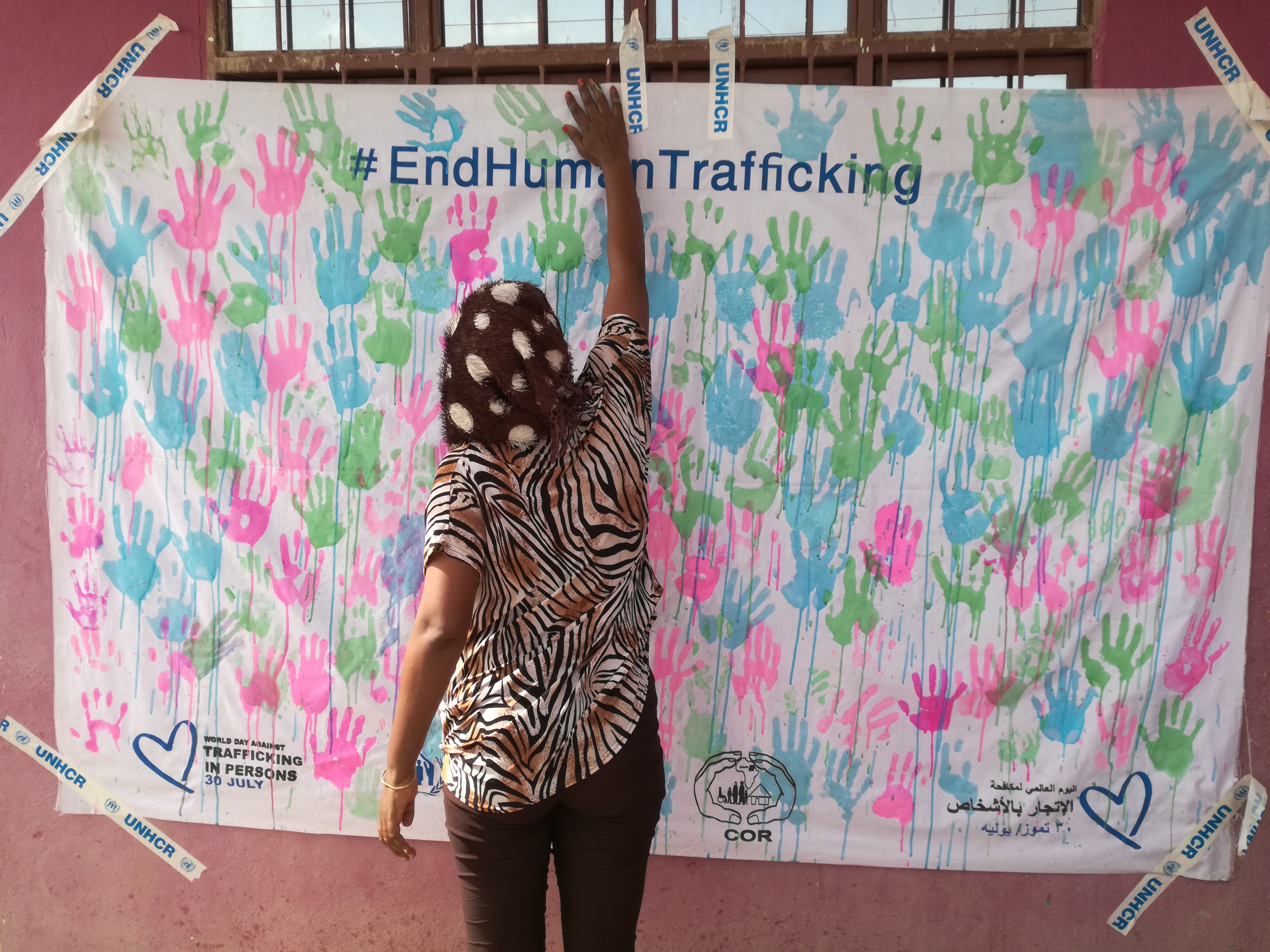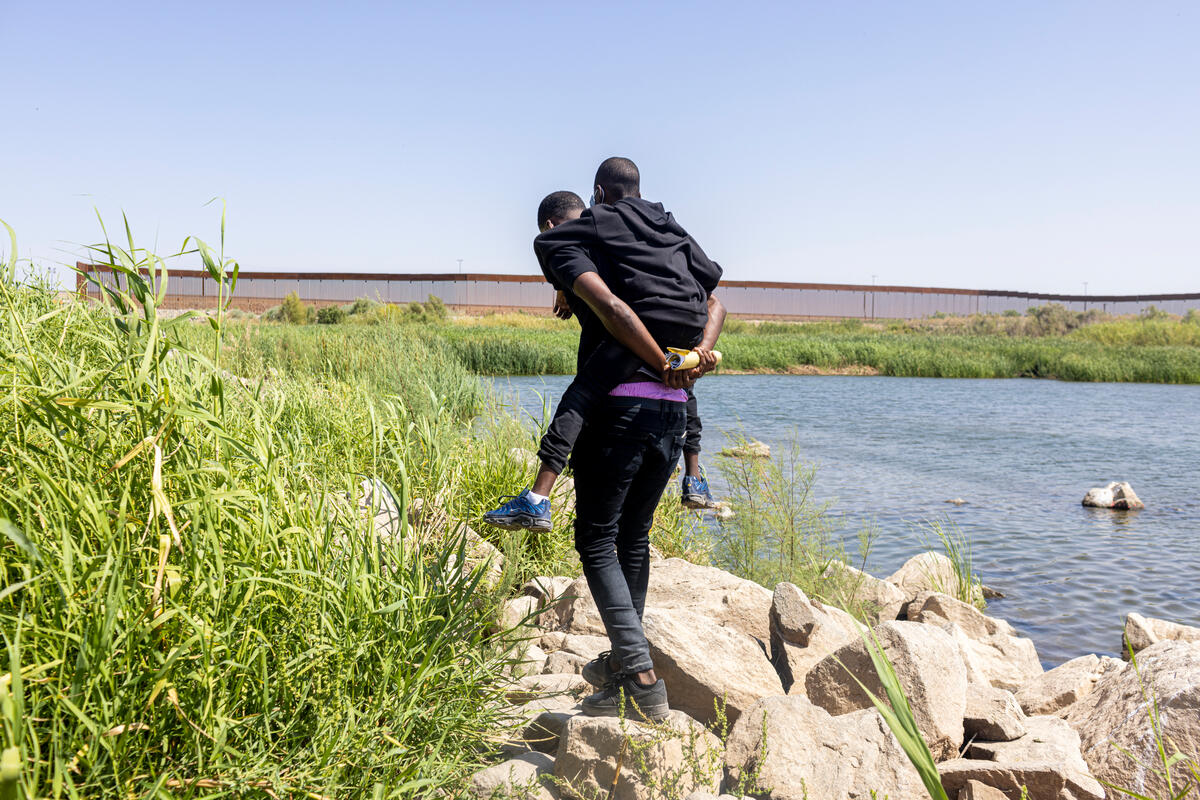Refugee protection an obligation, not a choice, says UNHCR's top refugee rights advocate
Refugee protection an obligation, not a choice, says UNHCR's top refugee rights advocate

GENEVA, October 5 (UNHCR) - The UN refugee agency is struggling to protect millions of refugees and displaced people in an increasingly hostile environment marked by violence, endemic human rights abuses and waning generosity among traditionally hospitable nations, UNHCR's chief of international protection said Wednesday.
Erika Feller, UNHCR's Director of International Protection, told representatives of the 68 nations that make up the agency's governing Executive Committee that "numerous obstacles" - many of them beyond the agency's power to ameliorate, much less remove - are hampering the effective delivery of protection to millions of uprooted people.
In a statement introducing her annual Note on International Protection, Feller cited several examples.
"The 2005 context for protection has been, for example, one of banditry and murder in Lukole refugee camp in Western Tanzania, or a major deterioration in security in West Darfur, with the most recent large-scale destruction of the camp for internally displaced in Aru Sharow leaving over 30 dead and 10 persons seriously injured," Feller said on the third day of the five-day Executive Committee meeting.
"The environment is also one of arbitrary arrest of lawyers UNHCR has been sponsoring to take up cases - such as those of women in Darfur, raped and made pregnant, then imprisoned by a system which does not want to acknowledge this for the crime that it is," she continued.
"It includes, too, the cold-blooded executions of teenage boys by irregular armed groups in Colombia, in an effort to intimidate communities fleeing violence and insecurity. Part of the context, as well, are the decomposing bodies washed ashore on beaches in the Mediterranean and the Gulf of Aden, some with hands bound as the guarantee of no escape, even from drowning. Finally, let me not leave out of the context the very disturbing accounts of people being denied entry in a state where they had previously resided, and blocked from entering the state where they had been born, raised and lived, only because they were deemed stateless."
Feller described the past 12 months as a time of sharp contrasts - "one of high rates of voluntary return and falling asylum numbers, but also of protracted refugee situations and waning generosity on the part of certain host states."
"Abuse of children, violence against women, refoulement of refugees and restriction of basic rights, such as freedom of movement, are endemic in many displacement situations," she said. "There has been marked progress in the building of asylum systems in a number of host states, while others have tightened their controls for anti-terrorism reasons and because of an increasingly complex migratory situation. Refugees have been repeatedly mischaracterized as criminals or 'possible terrorists,' or as illegal migrants whose protection is considered a secondary issue.... "
Within this complex external environment, UNHCR is fully committed to "operationalizing" its protection work at every level and to carrying out its mandate. In his opening speech to the committee on Monday, High Commissioner António Guterres declared that UNHCR is above all a refugee protection agency and that all staff members must see themselves as agents of protection. More than 6,000 UNHCR staff worldwide care for some 19 million refugees and others of concern.
Feller reiterated that protection is not a choice, but an obligation, and said governments should not misconstrue the provision of asylum as a hostile act.
"States have conferred on [UNHCR] quite a specific mandate, one that allows for no choice in whether to implement it; it is obligatory, not discretionary in its character," she said. "We understand that, on occasion, the exercise by UNHCR of its protection responsibilities may be uncomfortable for some governments. This is inherent in a mandate which requires UNHCR not only to provide assistance and technical advice, but also to step in to defend the rights of refugees where these are in jeopardy, including in the face of inaction, inability, or deliberate acts of concerned state actors. UNHCR does this as a humanitarian, non-political act, as the agent of the international community. No judgement is implied going beyond that the situation of persons of concern to us demands such a protection intervention. States have formally declared - and this in the 1951 Convention - that giving asylum cannot be construed as a hostile act. It is a humanitarian necessity."
While many of the external obstacles were beyond UNHCR's control, Feller said the agency was implementing various internal reforms to ensure that protection is fully mainstreamed in all aspects of the agency's operations. These range from increased emphasis on training and strengthened staffing and resourcing to ensuring greater access to durable solutions, especially refugee resettlement.
She said UNHCR was also striving to improve the quality and consistency of its refugee status determination activities - the process by which people in need of international protection are identified. Some states have occasionally questioned UNHCR's right to be involved in status determination. Feller emphasised that refugee status determination, or RSD, is part of the agency's mandate and it currently performs it in over 80 countries. In addition, she said, UNHCR has at least an advisory or consultative role in most of the 102 other countries that have their own RSD procedures.
"UNHCR's competence to provide international protection to refugees and to determine eligibility for protection under its mandate exists independently of states' obligations to provide international protection under the 1951 Convention and its 1967 Protocol," she said. "The mandate of the office is contained in a statute which has no geographic boundaries; it applies in any state, signatory or non-signatory. Clearly it is very difficult for UNHCR to carry out its statutory duties unless refugees are identified as such."









